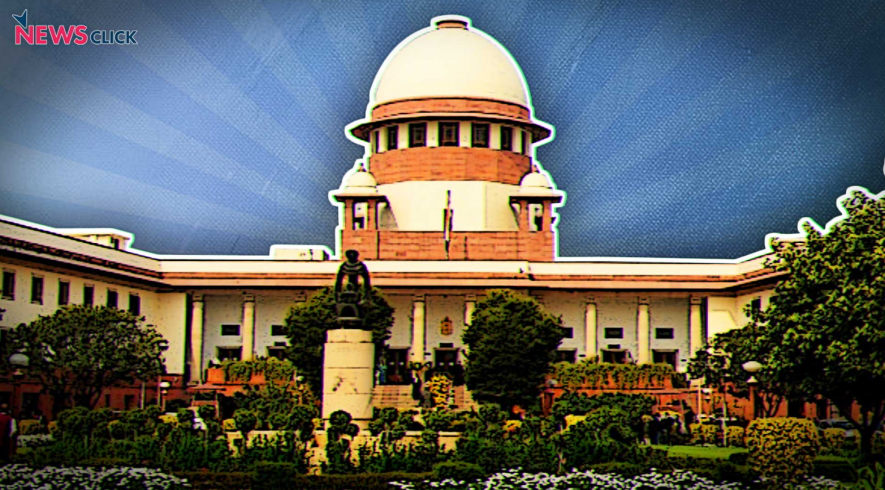Equal Wealth Distribution Distant Dream due to Corruption: SC

The Constitution’s preambular promise of securing social justice for Indians by striving to achieve equal distribution of wealth is “a distant dream” because of corruption, the Supreme Court (SC) has observed.
A Bench of Justices S Ravindra Bhat and Dipankar Datta in a significant judgement observed: “If not the main, one of the more prominent hurdles for achieving progress in this field is undoubtedly corruption.”
Terming corruption a “malaise”, the Bench said that its presence is “all-pervading in every walk of life”, according to a LiveLaw report.
The apex court was considering a case challenging the Chhattisgarh High Court’s (HC) order quashing a disproportionate assets case registered in 2020 against Aman Singh, the former principal secretary of former chief minister Raman Singh, and his wife Yasmin Singh, who was a consultant during his tenure.
Pointing out that corruption has become a way of life, the Court observed: “Indeed, it is a matter of disgrace for the entire community that not only there is a steady decline in steadfastly pursuing the lofty ideals which the founding fathers of our Constitution had in mind on the one hand, but the degradation of moral values in society is also rapidly on the rise on the other.”
Stating that greed is the root of corruption, the judgement, authored by Justice Datta, read: “Greed, regarded in Hinduism as one of the seven sins, has been overpowering in its impact. In fact, unsatiated greed for wealth has facilitated corruption to develop like cancer.”
The Bench observed that if the “corrupt succeed in duping the law enforcers, their success erodes even the fear of getting caught. They tend to bask under a hubris that rules and regulations are for humbler mortals and not them. To get caught, for them, is a sin”.
Terming it as “botched”, the Bench also pointed out how scams are investigated. “Little wonder, outbreak of scams is commonly noticed. What is more distressing is the investigations/inquiries that follow. More often than not, these are botched and assume the proportion of bigger scams than the scams themselves. However, should this state of affairs be allowed to continue?”
The Prevention of Corruption Act mandates “tracking down corrupt public servants and punishing them appropriately” because there’s a “higher expectation from people holding positions of power”, the Bench added.
But “certain public servants place their private interest higher than their public duty”, the SC further observed. “‘We the people’ with the adoption of our Constitution had expected very high standards from people occupying positions of trust and responsibility in line with the Constitutional ethos and values.”
Regretting that it has “not been possible”, the court observed: “Because, inter alia, a small section of individuals inducted in public service for ‘serving the public’ appear to have kept private interest above anything else and, in the process, amassed wealth not proportionate to their known sources of income at the cost of the nation.”
In the absence of a “magic wand to wipe out greed” the SC and HCs must “show zero tolerance to corruption and pull up offending officers”, the top court said.
“Since there exists no magic wand as in fairy tales, a swish of which could wipe out greed, the Constitutional courts owe a duty to the people of the nation to show zero tolerance to corruption and come down heavily against the perpetrators of the crime while at the same time saving those innocent public servants who unfortunately get entangled by men of dubious conduct acting from behind the screen with ulterior motives and/or to achieve vested interests.”
Undoubtedly, such a task is “onerous”, the SC said, “but every effort ought to be made to achieve it by sifting the grain from the chaff”.
Setting aside the HC judgement, the SC observed that it is desirable that HCs don’t quash corruption case FIRs at the investigation stage even if it is suspected that the case has been registered by a new government against officers of the previous government.
Get the latest reports & analysis with people's perspective on Protests, movements & deep analytical videos, discussions of the current affairs in your Telegram app. Subscribe to NewsClick's Telegram channel & get Real-Time updates on stories, as they get published on our website.
























